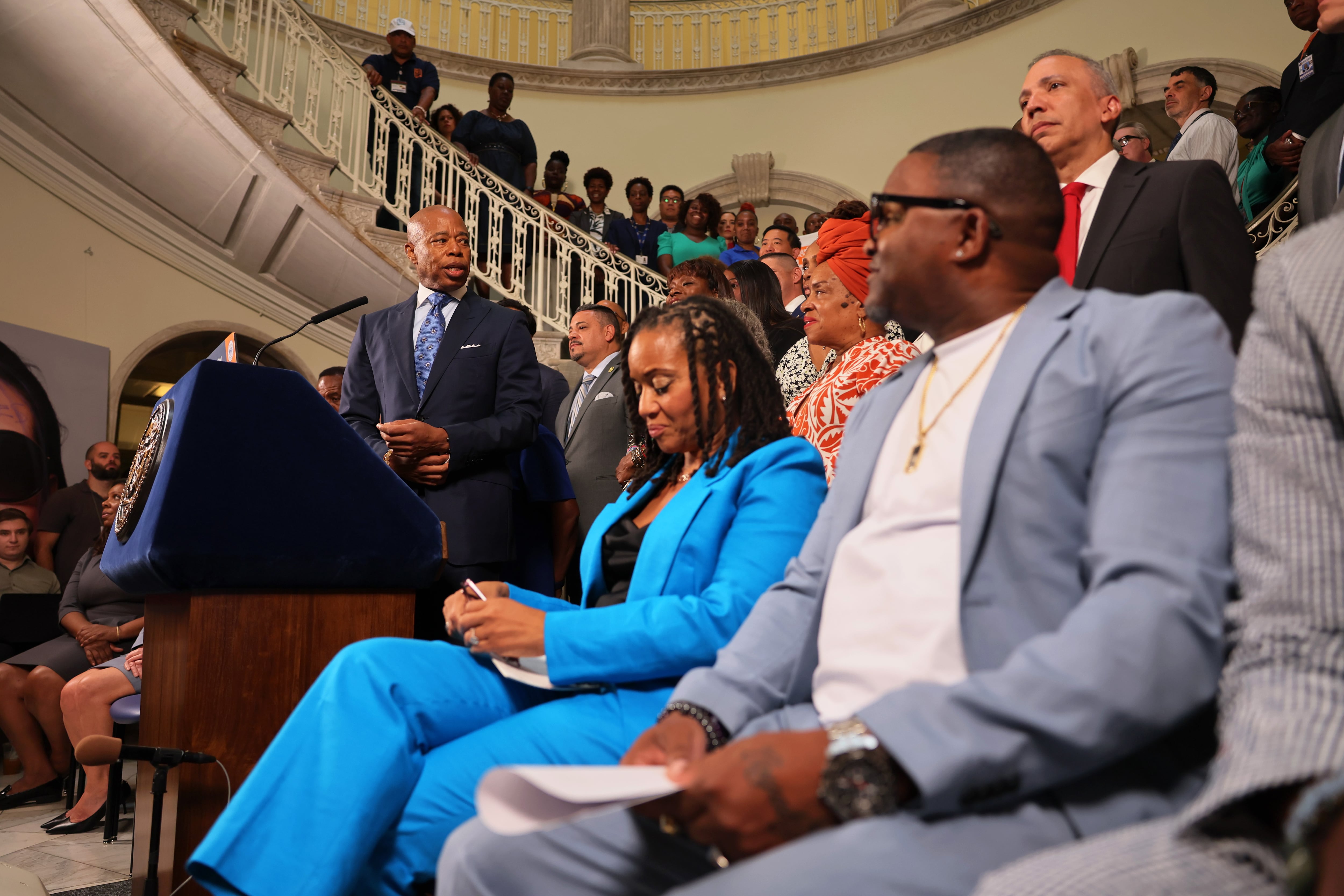A violence prevention program that forges partnerships between schools and community groups will expand this coming school year, part of a broader plan to improve neighborhood safety that city officials released on Monday.
Known as Project Pivot, the program connects schools with community organizations that provide everything from mentorship and counseling to violence interruption — which aims to prevent conflict by bringing in neighborhood leaders.
Beginning this school year Project Pivot will expand to 200 schools, from 144, reaching between 6,000 and 10,000 students, according to the city’s “Blueprint for Community Safety.” Before the latest expansion, officials had said they expected to reach 10,000 students; a City Hall spokesperson did not explain why that goal has remained the same even as the number of participating schools is growing.
Mayor Eric Adams touted the program, which launched last year, as one of the most significant strategies in the new blueprint for keeping young people safe.
“It was about, ‘how do we get into the schools and engage young people at an early age,’” Adams said. “There has to be some real results.”
Project Pivot’s expansion comes as young people are increasingly affected by violence, even as violent crime is trending down and New York City remains relatively safe. Since 2019, the number of shooting victims under age 18 has doubled, city officials said, incidents that have sometimes devastated school communities.
The number of weapons confiscated at public schools has also spiked since the pandemic hit. Nearly 7,000 weapons were recovered last school year, up nearly 9% over the previous year, according to police department data. In the school year before the pandemic, about 2,600 weapons were confiscated. Some students said they carried pepper spray or tasers to protect themselves on their commutes.
The blueprint announced Monday includes a broad range of policies across city agencies and targets six police precincts across Brooklyn and the Bronx that experience a disproportionate share of shootings. The plan calls for expanding after-school programming in those precincts, for instance, though it does not specify how many schools or children may benefit. First Deputy Mayor Sheena Wright told reporters that more detailed community-level plans would be available in the coming weeks.
Officials did not immediately say which schools will be included in the Project Pivot expansion, but noted they will be spread across the city. The program is expected to cost $15 million under the expansion, up from $9 million, officials said. It is funded with federal relief money, raising questions about its long-term sustainability as those dollars begin to run dry.
Chalkbeat is interested in learning more about how students, parents, and community organizations feel about Project Pivot and its expansion. To let us know, take our very brief survey here.
Alex Zimmerman is a reporter for Chalkbeat New York, covering NYC public schools. Contact Alex at azimmerman@chalkbeat.org.





